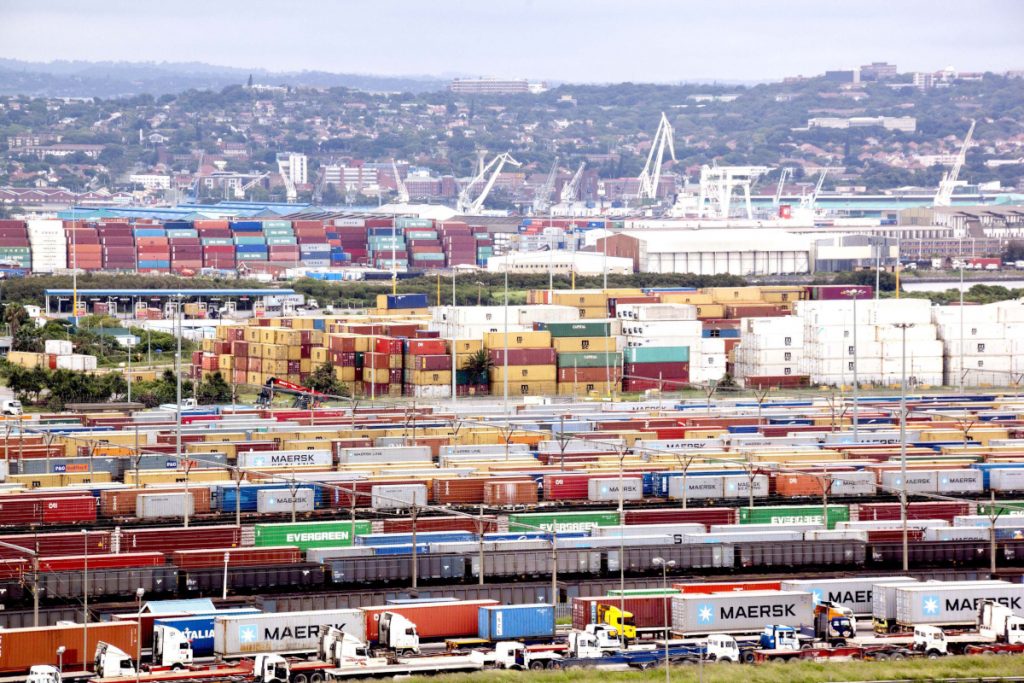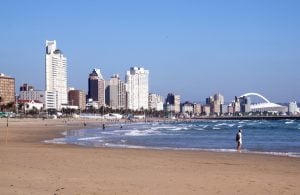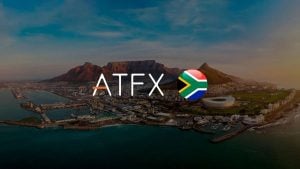Load shedding isn’t South Africa’s biggest problem anymore: report

The failing ports, congested roads and the collapse of Transnet threaten the entire South African economy.
According to the Sunday Times, the congestion crisis at South Africa’s ports has resulted in cargo ships waiting as much as 19 days to offload their shipments, forcing many of the world’s biggest shipping lines to impose “congestion surcharges”, with some now opting to fly goods into South Africa at a higher cost, while others are avoiding South Africa’s port altogether.
Cape Town’s port is seeing delays of 14 days to offload cargo. Average delays at the Durban Multipurpose Terminal were 365 hours (15 days), while the waiting time at Container Terminal Pier 2 was 457 hours, or 19 days, according to a Transnet Port Terminals (TPT) national recovery update.
As of last week, there were roughly 70,000 shipping containers stranded on ships off Durban alone.
Several shipping lines are now imposing surcharges of around R8,000 per container, claiming that delays in South Africa are disrupting their international schedules. Among them are Hapag-Lloyd, Maersk, MSC and CMA CGM.
Working on just the 70,000 containers delayed in Durban, and this surcharge costs South African businesses over half a billion rand – roughly R560,000,000.
Additionally, port sources said more shipping firms were likely to reconfigure their routes to save money and time. A large container vessel costs about R643,000 to operate a day.
The surcharge is likely to hit South African consumers as well, as it will make imported goods more expensive.
Businesses this week held talks with the government and shipping line representatives to discuss the implications of the surcharge and the new cargo regime. Major retailers involved included Mr Price, Toyota and Defy.
Local ports are among the worst in the world, with Durban ranked 341 and Cape Town 344 out of 348 global ports surveyed in the World Bank’s container port performance index 2022.
The cost is great
The collapse of South Africa’s rail and port utility, Transnet, has cost the country R1 billion a day in economic output, equivalent to 4.9% of annual GDP or R353 billion. This was revealed in a study by the GAIN Group, a boutique consultancy focusing on contract research of freight transport.
Rudi Dicks, joint head of President Cyril Ramaphosa’s much-vaunted turnaround plan, noted that the government recognise the problem and the scope of it.
Thus, the transport crisis is rapidly displacing electricity as the main hurdle to reviving South Africa’s stagnant economy.
Dicks noted that to fix our harbours, Transnet National Ports Authority will need about R50 billion in capital expenditure that is not in its budget. “‘The questions now are where we will get the money from and when. We cannot afford to wait a year,” he Dicks.
Transnet chairperson Andile Sangqu noted that Transnet’s debt obligation of R135 billion is more than it can handle. “The interest costs are R13 billion, and Transnet does not have the capacity for it. It needs help,” he added.
“Irrespective of the improvements we make to our financial and operational numbers, we have got to get some assistance.
John Lawson, CEO of the Cape Chamber of Commerce & Industry, said the private sector urgently needed government support at national and provincial levels to ease port congestion.
A turnaround plan produced by Sangqu’s board two weeks ago proposed that the Treasury take over R61 billion of Transnet’s debt. The plan further said that to be sustainable, Transnet also requires an R47 billion equity injection.
Read: Government workers are out-earning the private sector in South Africa



















